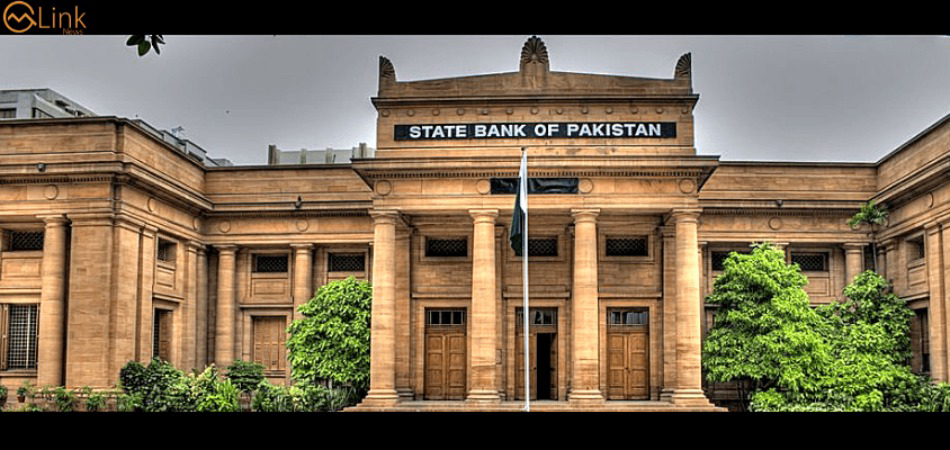Summary of Pakistan’s economic progression in the outgoing year

MG News | December 31, 2018 at 02:09 PM GMT+05:00
December 31, 2018 (MLN): The year 2018 saw Pakistan's economy under immense pressure, as it endured decreasing foreign exchange reserves, increasing trade deficit, as well as widening circular debt. The newly elected PTI-government, in order to curb the situation, increased taxes on utilities and luxury goods.
To alleviate the worsening position of the country’s balance of payment, countries like Saudi Arabia, China and the United Arab Emirates (UAE) came forward to provide bailout packages to prevent the continuous fall in Pakistan’s foreign exchange reserves.
Following is a detailed summary of the major economic developments that took place during 2018
US withheld $255m military fund for Pakistan over its non-serious attitude in helping counter terrorism in Afghanistan
The US government announced its plans to withhold $255 million in military fund to Pakistan as it was skeptical that the country was not taking serious steps against the terror networks, particularly the notorious Haqqani terrorist network.
The administration also believed that Pakistan’s intransigence was signified by its “repeated refusal” to grant the United States access to a Haqqani network operative, who was allegedly captured by Pakistani forces during an October raid to free a Canadian-American family.
“As the President said, so I say now: Pakistan has much to gain from partnering with the United States, and Pakistan has much to lose by continuing to harbor criminals and terrorists,” the US Vice President Mike Pence made this statement during his visit to Afghanistan.
Tax amnesty scheme
The then Prime Minister of Pakistan, Mr. Shahid Khaqan Abbasi, announced a five point reform for changes in individual tax rates, Foreign Assets Declaration and Repatriation Ordinance and Voluntary Declaration of Domestic Assets Ordinance.
The following changes were made in the individual tax rates:
- Individuals with 12 lac per annum exempted from tax
- Individuals with income falling between 12-24 lacs per annum will be taxed at 5 percent
- Individuals whose income per annum falls between 24-48 lacs will be taxed at 10 percent
- Individuals with income 48 Lac per annum will be taxed at 15 percent
Prime Minister also explicitly announced that politicians along with their extended families will not be able to claim amnesty under this scheme. He also said that this amnesty is a final chance to tax evaders to declare their income and assets otherwise strict punitive actions will follow. The Prime Minister also informed that the Foreign Assets Declaration and Repatriation Ordinance is not valid for funds from Money laundering, Drug smuggling and Terror financing.
The Prime Minister said that a sophisticated system for detecting tax evaders had been developed which will be put into effect after the amnesty scheme expires. He said that the vigilance under the new system will be extremely thorough and will monitor movements of evaders within and out of the country, their expenditure habits along with their purchase patterns.
Chinese tech giant Alibaba entered Pakistani market by acquiring Daraz
Chinese e-commerce giant Alibaba in May purchased the leading Pakistani online retailer Daraz, continuing its overseas expansion by gaining a foothold in the growing South Asian consumer market.
The move came after Alibaba announced in March a doubling of its investment in Southeast Asian e-commerce firm Lazada.
The New York-listed firm added 98 million active consumers over the year ended March 31, to a total of 552 million using its e-commerce marketplaces.
Pakistan placed on FATF 'grey list' despite efforts to avoid it
Pakistan was officially placed on the Financial Action Task Force (FATF) 'grey list' in June.
A terrorism financing watchdog took the decision during a meeting in Paris, arguing that Pakistan had failed to act against terror financing.
After being placed on the 'grey list', Pakistan is being directly inspected by the financial watchdog until it is satisfied that right measures are being taken by the country to curb terror financing and money laundering.
PM Khan formed 18-member Economic Advisory Council
Prime Minister Imran Khan approved the formation of an Economic Advisory Council in September, which consisted of 18 members, out of which 11 members were from the private sector.
The members of the council included Finance Minister, Minister for Planning Development and reforms, Deputy Chairman planning commission, State Bank Governor, Adviser on Institutional Reforms, Adviser on Commerce and Secretary, Finance Division.
The ultimate goal of the Economic Advisory Council is to promote analytically sound and evidence-based reforms and initiatives for the progress and development of Pakistan.
However, almost a week later, Mr. Atif Mian, the newly appointed Princeton University qualified economist, was asked to step down from his position of Economic Advisor by the PTI government
The decision was taken on account of immense pressure from various groups and religio-political parties against the appointment of Dr. Mian, who cited his affiliation with a minority community as being the key root of the uproar.
Saudi Arabia pledged USD 6 Billion package to support Pakistan’s Balance of Payment
During the Prime Minister’s visit to Saudi Arabia in October, a MoU was signed between the Finance Minister Asad Umar and the Saudi Finance Minister, Muhammad Abdullah Al-Jadaan where it was agreed Saudi Arabia will place a deposit of USD 3 Billion for a period of one year as balance of payment support.
It was also agreed that a one year deferred payment facility for import of oil, up to USD 3 Billion, will be provided by Saudi Arabia. This arrangement will be in place for three years, which will be reviewed thereafter.
PM Imran Khan constituted Council of Business Leaders
Prime Minister Imran Khan in October approved the constitution of a 22-member Council of Business Leaders (CBL), to ensure the availability of best professional advice and quick implementation of decisions, particularly those concerned with increasing exports and doping out the current account deficit.
Prime Minister Imran Khan was made the chairman the CBL, whereas Adviser to the Prime Minister on Commerce Mr. Abdul Razak Dawood was made the President.
Pakistan's 'Doing Business Report' ranked up by 11 points: World Bank
Advisor to Prime Minister, Mr. Razzak Dawood in November announced that Pakistan’s ranking improved by 11 points, and moved from 147 to 136 in the ‘Doing Business Report 2019’. The report which was published by the World Bank, measures the performance in ease of doing business in 190 countries.
Since the launch of DB report in 2002, it was the first time that Pakistan had jumped 11 points in one year.
The reforms behind improvements made in Pakistan’s ranking included the introduction of the online one-stop registration system for starting a business, the replacement of several forms for incorporation with a single application and establishment of information exchange mechanism between the Securities and Exchange Commission of Pakistan (SECP) and Federal Board of Revenue (FBR).
China agreed to almost double its imports from Pakistan
China had agreed to double its imports from Pakistan within a year in order to alleviate balance of payment. Exports to China may include all those goods that Pakistan produces in surplus i.e. rice, sugar, textile, leather etc., he added.
The development took place after the Prime Minister Imran Khan informed the federal cabinet that his visit to China was more successful than expected and that the host country had guaranteed every kind of assistance to Pakistan.
UAE pledged to deposit US$3 billion in State Bank of Pakistan
The United Arab Emirates in December announced its intention to deposit US$3 billion (equivalent to AED11 billion) in the State Bank of Pakistan to support the financial and monetary policy of the Islamic Republic of Pakistan.
The Abu Dhabi Fund for Development in a statement said that it will deposit the said amount in the coming days to enhance liquidity and monetary reserves of foreign currency at the Bank.
The country's support for Pakistan's fiscal policy was based on the historical ties between the two people and the two friendly countries and the desire to further develop the bilateral cooperation in all fields.
Prime Minister Imran Khan visited the UAE in November and met Crown Prince of Abu Dhabi Sheikh Mohamed bin Zayed and Deputy Supreme Commander of the Armed Forces. It was his second visit to Abu Dhabi in three months since he assumed office in August.
Government likely to introduce mini budget in January: Finance Minister
Finance Minister Asad Umar informed the members of the Senate Committee on finance that the government is likely to introduce mini budget in January.
"We planned to table the bill before parliament by the middle of next month, however, final decision will be taken after taking all due measures", he said.
Following this, the Information Minister Chaudhry Fawad Hussain said that the upcoming mini budget was geared towards increasing investments and growth.
Copyright Mettis Link News
Related News
| Name | Price/Vol | %Chg/NChg |
|---|---|---|
| KSE100 | 134,299.77 290.06M |
0.39% 517.42 |
| ALLSHR | 84,018.16 764.12M |
0.48% 402.35 |
| KSE30 | 40,814.29 132.59M |
0.33% 132.52 |
| KMI30 | 192,589.16 116.24M |
0.49% 948.28 |
| KMIALLSHR | 56,072.25 387.69M |
0.32% 180.74 |
| BKTi | 36,971.75 19.46M |
-0.05% -16.94 |
| OGTi | 28,240.28 6.19M |
0.21% 58.78 |
| Symbol | Bid/Ask | High/Low |
|---|
| Name | Last | High/Low | Chg/%Chg |
|---|---|---|---|
| BITCOIN FUTURES | 118,140.00 | 119,450.00 115,635.00 |
4270.00 3.75% |
| BRENT CRUDE | 70.63 | 70.71 68.55 |
1.99 2.90% |
| RICHARDS BAY COAL MONTHLY | 97.50 | 0.00 0.00 |
1.10 1.14% |
| ROTTERDAM COAL MONTHLY | 108.75 | 108.75 108.75 |
0.40 0.37% |
| USD RBD PALM OLEIN | 998.50 | 998.50 998.50 |
0.00 0.00% |
| CRUDE OIL - WTI | 68.75 | 68.77 66.50 |
2.18 3.27% |
| SUGAR #11 WORLD | 16.56 | 16.60 16.20 |
0.30 1.85% |
Chart of the Day
Latest News
Top 5 things to watch in this week
Pakistan Stock Movers
| Name | Last | Chg/%Chg |
|---|
| Name | Last | Chg/%Chg |
|---|



